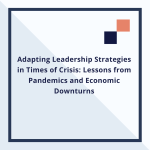In the dynamic world of business, risk management is more critical than ever. Organizations of all sizes face a myriad of uncertainties, from economic fluctuations and technological disruptions to regulatory changes and competitive pressures. Effective risk management is the process of identifying, assessing, and mitigating these risks to ensure the long-term success and sustainability of a company.
At its core, risk management involves understanding the potential threats that could affect an organization’s objectives and taking proactive steps to minimize their impact. This requires a comprehensive approach, starting with risk identification. Companies must examine both internal and external factors—whether it's financial instability, cybersecurity threats, or operational inefficiencies—that could hinder their performance. Identifying these risks early allows organizations to prepare before they escalate into serious problems.
Once risks are identified, assessing their likelihood and potential impact is key. Not all risks are created equal, and companies must prioritize which threats pose the greatest danger to their objectives. This involves evaluating the probability of each risk occurring and the severity of its impact on the organization’s operations, reputation, and financial health.
Mitigating risk is the next crucial step. This can involve a range of strategies, from adopting new technologies that strengthen cybersecurity to diversifying revenue streams to reduce dependency on a single market. Developing contingency plans for different risk scenarios is also essential, ensuring the organization remains resilient in the face of unexpected disruptions.
Successful risk management isn’t just about avoiding negative outcomes—it's about positioning the organization to seize opportunities that come from taking calculated risks. Leaders who embed risk management into their strategic planning empower their teams to innovate with confidence, knowing they have the tools in place to navigate challenges.
In an unpredictable world, a robust risk management strategy is essential for ensuring that organizations remain secure, agile, and poised for sustainable growth






